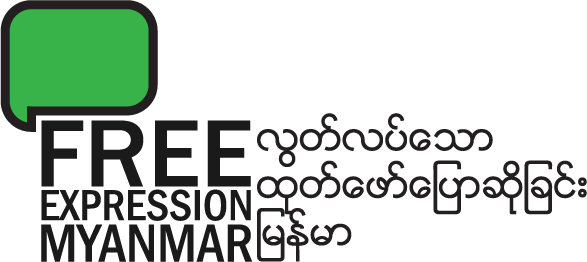Electronic Transactions Law
The Electronic Transactions Law was created under the military government to regulate the internet and control internet users using harsh criminal punishments. The Electronic Transactions Law includes illegitimate criminal punishments for freedom of expression which are unacceptable in a democracy.
The Electronic Transactions Law was amended on 15 February 2021 by the military. Read the analysis here >> The following content is relevant but outdated.
Summary of recommendations
The Electronic Transactions Law needs to be replaced with a cyber-crime law in line with international standards.
Articles 33-34 – Content regulation
Articles 33-34 regulate content sent electronically. Article 33 criminalises receiving, sending or distributing electronic information which harms national security, community peace, solidarity, the economy or culture, with a prison term of 15 years. Article 34 criminalises creating or altering electronic information which harms the dignity of any person or organisation, with a prison term of 3 years. There are no definitions of any of these acts.
International standards
Any restriction on freedom of expression must be clearly written and necessary in a democracy. Articles 33-34 are not clear because they criminalise acts that are vague and undefined. Some of the restrictions such as harming national security could be acceptable but there is no definition of what national security is, so the law could be easily abused to censor people. International standards list what limitations to freedom of expression are acceptable, and most of the limitations in Articles 33-34 are not.
Recommendation
Repeal Articles 33-34 and replace them with a cyber-crime law in line with international standards.
မကြာမှီလာမည်!
Updates
- Multi-stakeholder webinar on Myanmar’s website blocking and shutdown — မြန်မာပြည်ရှိ ၀က်(ဘ်)ဆိုက်တစ်ချို့ ပိတ်ပင်ခံရခြင်းနှင့်ပတ်သက်၍ အဖွဲ့အစည်းပေါင်းစုံ ပါ၀င်သော အွန်လိုင်းဆွေးနွေးပွဲ
- Six risks from Myanmar’s draft Cyber Security Law
- Myanmar’s new Electronic Transactions Law Amendment
- Deactivating SIM cards during Covid-19 violates rights — Covid 19 ကာလအတွင်း ဆင်း(မ်)ကဒ်များကို ပိတ်သိမ်းခြင်းသည် လူ့အခွင့်အရေးများကိုချိုးဖောက်ခြင်း ဖြစ်သည်။
